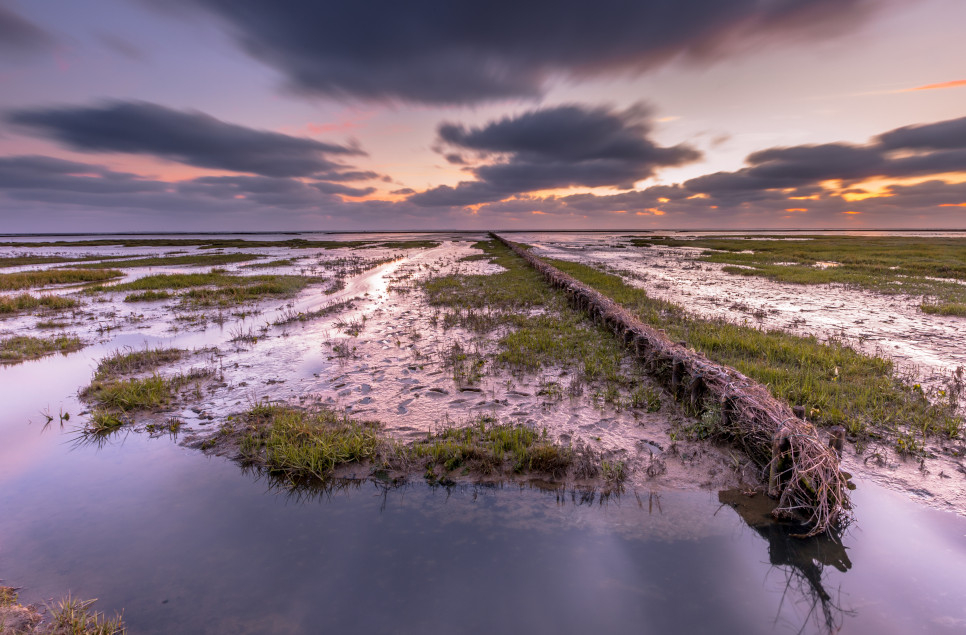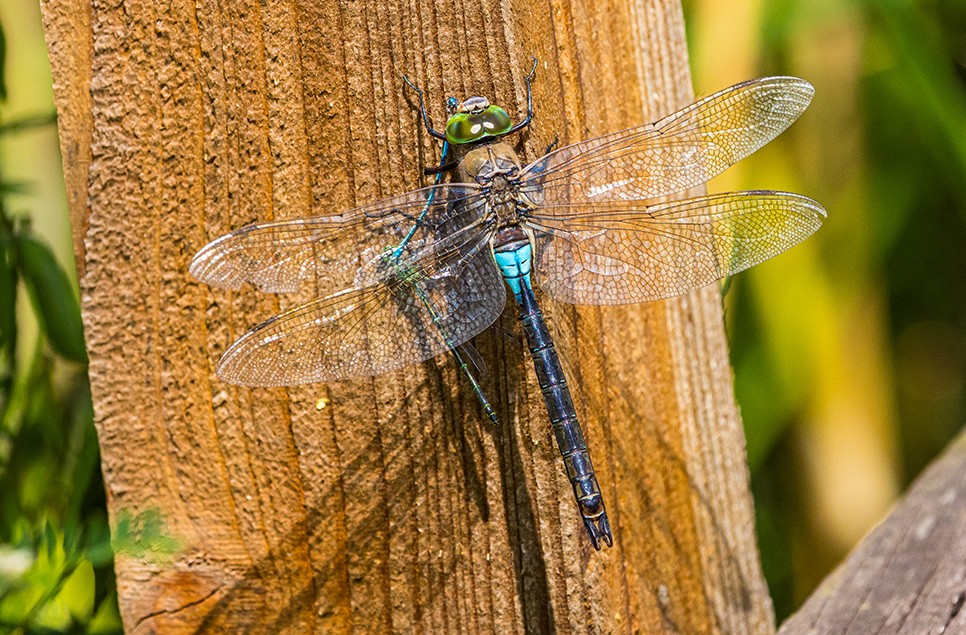Our response to the UN’s GBO-5 report: Humanity at a crossroads

Summary
The Global Biodiversity Outlook 5 (GBO-5) report, published by the UN Convention on Biological Diversity (CBD) on 15 September, offers an authoritative overview of the state of nature now. It is a school report on the world’s progress in meeting the 20 global biodiversity targets agreed in 2010 to be met in 2020, and offers lessons learned and best practices for getting on track.
The just published GBO-5 report warns that despite encouraging progress in several areas, the natural world is suffering badly and getting worse. It finds that only six of the world’s 20 biodiversity goals have been partially achieved by the 2020 deadline. It highlights that action on biodiversity is essential to address climate change, long-term food security and health and advocates that the time for action on all these issues is now.
To this end, the GBO-5 report recommends that transformative changes (transitions) are urgently needed in eight key areas to ensure human wellbeing and to save the planet. These are:
- The land and forests transition
- The sustainable agriculture transition
- The sustainable food systems transition
- The sustainable fisheries and oceans transition
- The cities and infrastructure transition
- The sustainable freshwater transition
- The sustainable climate action transition
- The biodiversity-inclusive One Health transition
See here for more details on these transitions.
WWT’s response
The bad news:
James Robinson, Director of Conservation, from WWT says:
WWT, along with most in the conservation world and beyond, are sadly not surprised that the GBO-5 report shows that the world has failed to meet any of the twenty 2020 UN biodiversity targets and has only made partial progress towards six. It is, nonetheless deeply disappointing and a huge concern for the world.
The UN Convention on Biodiversity Executive Secretary, Elizabeth Maruma Mrema underlines the seriousness and urgency for action by saying:
…The rate of biodiversity loss is unprecedented in human history and pressures are intensifying. Earth’s living systems as a whole are being compromised...
As nature degrades new opportunities emerge for the spread to humans and animals of devastating diseases like this year’s coronavirus. The window of time available is short, but the pandemic has also demonstrated that transformative changes are possible when they must be made.
We are particularly concerned that the 2020 freshwater biodiversity targets were not even partially met. The report highlights the continuing rapid global decline of global wetlands. This decline significantly reduces the worldwide availability of freshwater for people and wildlife, the ability for communities to alleviate flooding and tolerate drought – a growing concern in a changing climate, amounts of carbon storage available and food provision, amongst other things. GBO-5 recognises that the fragmentation of rivers remains a critical threat to freshwater biodiversity and finds that 40% of the planet’s species which live in these ecosystems are rapidly declining.
The way forward
As the report states humanity is now at a crossroads in relation to nature’s diversity of species and ecosystems.
Elizabeth Maruma Mrema urges we take the right road saying:
The decisions and level of action we take now will have profound consequences for good or ill for all species, including ours.
The action that the report recommends are eight major transitions to halt and slow biodiversity decline by 2030. These transformative changes call for a shift away from “business as usual” across a broad range of human activities to increase biodiversity, restore ecosystems and reduce the negative impacts of human activity. We are encouraged to see that one of the GBO-5’s eight major transitions is dedicated to halting freshwater biodiversity loss.
The GBO-5 sustainable freshwater transition:
An integrated approach guaranteeing the water flows required by nature and people, improving water quality, protecting critical habitats, controlling invasive species and safeguarding connectivity to allow the recovery of freshwater systems from mountains to coasts. This transition recognizes the importance of biodiversity in maintaining the multiple roles of freshwater ecosystems to support human societies and natural processes, including linkages with terrestrial, coastal and marine environments.
We call for these eight major transitions, including the sustainable freshwater transition, to be integrated into the post-2020 targets adopted at the Convention on Biodiversity’s 15th meeting of the Conference of the Parties at the (COP-15) in 2021. We believe that the rigorous global application of the GBO-5’s sustainable freshwater transition will be instrumental in helping the world slow the rapid decline in freshwater species and ecosystems and to ultimately achieve 2030 biodiversity targets.
This freshwater transition is key to saving one of the planet’s most biodiverse habitats, hosting more species per square kilometre than land or oceans, which is also losing its extraordinary biodiversity two or three times faster than other habitats.
The 2020 Freshwater Living Planet Index published on 10 September, found that one in three freshwater species are now threatened with extinction. Humans are also particularly reliant on good freshwater biodiversity – relying on this habitat’s diverse ecosystems for water, food, livelihoods, and protection from floods, droughts and storms.
James Robinson, states:
To put it simply, fix freshwater biodiversity and you’re saving a disproportionately high number of wildlife, ecosystems and people. Meeting freshwater biodiversity targets in the next decade and beyond is key for halting overall biodiversity decline and in meeting global sustainability and climate change goals.
We’re particularly encouraged to note that the GBO-5 sustainable freshwater transition strongly overlaps with the Bending the Curve of Global Freshwater Biodiversity Loss: Emergency Recovery Report published in Biosciences in February 2020. Developed by a global team of scientists from WWT, WWF, International Union for Conservation of Nature (IUCN), Conservation International, the University of Cardiff and other eminent institutions, the report contains six key recommendations, rooted in cutting edge science and proven success:
- Letting rivers flow more naturally
- Reducing pollution
- Protecting critical wetland habitats
- Ending overfishing and unsustainable sand mining in rivers and lakes
- Controlling invasive species
- Safeguarding and restoring river connectivity through better planning of dams and other infrastructure
Financial Resources
The GBO-5 report states that in all an estimated annual $78-91 billion is available globally for protecting biodiversity, however ‘estimates of biodiversity finance needs are conservatively estimated in the hundreds of billions of dollars.’ What is currently being spent on biodiversity is falling short of what is needed.
Moreover, the report notes that resources for biodiversity are swamped by financial support for activities harmful to biodiversity. It says, ‘these include $500 billion in fossil fuel and other subsidies that potentially cause environmental harm, $100 billion of which relate to agriculture.’
WWT urges the parties at COP-15 to prioritise and increase the financial resource available for biodiversity and shift subsidies to empower rapid transitions to more environmentally friendly land use.
Global Green Recovery
We agree with the report’s comments that the world needs to make space for nature as we rebuild after Covid. This reflects the objective of the growing green recovery movement, of which WWT is part, that is lobbying world leaders to build back better for nature after the devastation of the Covid pandemic and in doing so reduce the risk of further pandemics.
Bright spots
We also welcome the bright spots contained within the GBO-5 report. This includes ‘deforestation rates continuing to fall, eradication of invasive alien species from islands is increasing and awareness of biodiversity appears to be increasing.’ In addition, evidence shows that between 28 and 48 bird and mammal species have been saved from going extinct since 1993 through conservation action.
However, “The actions that have been taken need to be significantly scaled up, move from being project driven and become more systemic and broadened,” says Ms. Mrema.
We agree that action for biodiversity needs to be scaled up, including for freshwater biodiversity. We believe the wide-scale application of the GBO-5 sustainable freshwater transition is a vital part of this broadening of action to halt overall biodiversity loss.
SMART
WWT calls for the 2030 biodiversity targets to be SMART so that they can be regularly monitored to check they are being met throughout the coming decade. We also advocate sustained support to meet targets at regional and local levels, through ‘on the ground’ capacity building activities and support networks. WWT continues to build capacity for wetland conservation throughout the world, and we have been working with the Convention on Biodiversity and the Ramsar Convention to advocate and demonstrate the success of this approach.
What about the UK?
WWT, along with other environmental charities across the UK, are urging our four nations’ governments to begin a ‘new era for nature’, following the publication of the GBO-5 report. We are calling for the UK to lead the charge for new targets and concerted global action to reverse our nature crisis.
Prime Minister Boris Johnson is being urged by WWT and other organisations to commit to a new UK era for nature by announcing at the UN Convention for Biodiversity summit on 30 September that the government will: protect at least 30% of land and sea for nature by 2030, and support a new global target and action plan to restore species and habitats with equivalent targets to be set in UK law under the Environment Bill.
What now?
At WWT, as a global charity specialising in conserving, creating and protecting biodiverse wetlands, we have long been demonstrating the importance of healthy freshwater biodiversity to the public and global decision makers. And we shall continue to campaign for freshwater biodiversity at the UN’s forthcoming Convention on Biodiversity summits.
We’ve already seen some of the fruits of our campaigning in the strong overlap between our Emergency Recovery Report and the GBO-5’s freshwater transition. We now want to see all eight of the GBO-5’s major transitions, including the sustainable freshwater transition, and our Emergency Recovery Plan recommendations integrated into the upcoming Post-2020 Targets of the Convention on Biological Diversity. We will push for, and support, greater implementation of the Convention on Biological Diversity. If countries develop properly resourced implementation plans, we believe this will go a long way to reverse nature’s decline by 2030 to create a society that can function in harmony with nature by 2050.
What can you do to help?
We must act now to ‘bend the curve’ for freshwater biodiversity:
- Help WWT continue to push freshwater biodiversity up the agenda, by asking the UK government to lobby at the UN Convention on Biodiversity on 30 September for the adoption GBO-5’s freshwater transition and our Emergency Recovery Plan. Email us at advocacy@wwt.org.uk and we can provide advice and help with how to do this
- To help us continue to campaign for increased freshwater biodiversity when our finances have been significantly affected by the coronavirus pandemic please consider donating to our emergency appeal



